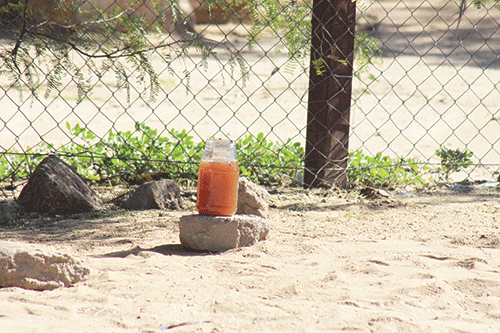KATIMA MULILO – The traditional home-brewed beer, ‘tombo’, and other related fermented brews, such as the famous ‘kachansu’, appear to be causing more chaos than joy in the Zambezi region.
Many parents are unfortunately addicted to these brews, forcing them to leave their homes early in the morning and return at night, without supervising their children.
Tombo and other homebrews have been found to be toxic and can have devastating health effects if consumed regularly and excessively.
Some tombo drinks contain more than 80% alcohol, which is over double the concentration in other, more conventional spirits.
Tombo and other cheap homebrews are enjoyed by many people from all spectrums of life around Namibia, but many eventually get addicted to it.
Sibbinda councillor Mickey Lukaezi is concerned that alcoholism is a serious problem in his constituency.
However, he said, as councillors, their hands are tied, as they cannot control shebeen and cuca shop owners within their communities to close their businesses on time.
“The time and certificates they are mandated to sell alcohol by the justice ministry should be considered and enforced to close on time. We are having a lot of accidents on our main roads because drivers are drunk. We cannot afford to lose our people; it is not good for our region. Shebeens and tombo outlets should be closed on time,” Lukaezi lashed out.
Zambezi governor Lawrence Sampofu is also deeply concerned about the consumption of homebrews.
“Our people are drinking too much tombo. Tombo is something that was brought to this region, but the way we are taking that tombo is just too excessive. If you go to the north, where people are taking tombo, you find there is kapana there. There is a pot – people drink and eat. If you are drinking and eating, you don’t get so intoxicated so much. But here, the whole family – mother and father – is already gone at 06h00 every day to go drink tombo,” he reacted.
According to him, the many parents whose homes are broken due to tombo consumption do not have time to care for their children.
Sampofu said parents regularly go to the drinking holes early and come home late, and their children return from school without seeing them.
This, he said, has detrimental effects, as children go unsupervised on a daily basis.
He, therefore, suggested that traditional
authorities work together with the regional
leadership and law enforcement to ensure drinking holes, such as shebeens and bars, are 500 metres away from residential areas and public places, such as schools. Equally, he said, before business people are issued with liquor licences, mandated officials should check the areas where these drinking holes will be set up to avoid noise pollution.
“Noise pollution is just too much at drinking places. Even our lodges are always complaining about noise pollution in the villages. Let’s fight this noise pollution,” Sampofu said.
Approached for comment, Zambezi police spokesperson Kisco Sitali said they are aware of noise pollution in some areas in the region.
He said once such a report reaches their office,
they respond to such incidences and even close drinking holes that cause pollution or operate
without proper documentation.
The only challenge they face is when people brew traditional drinks in their houses. Sitali said traditional authorities should come on board and make sure people close their businesses on time.
He said most bars surrounding the Katima Mulilo town are licensed and have no issues with adhering to the law.
“We are aware that there are issues with homebrew outlets. We advise our traditional authorities to report issues committed at traditional drinking places. These outlets are not regulated, and they are set up in courtyards; it affects the villagers. Some of these people are selling homebrew hot stuff, called ‘kachansu’. You just take a tot and it›s enough for the whole day; [people are] even rolling on the floor,” he remarked.
Sitali advised traditional authorities to regulate these homebrew outlets in their villagers so they close on time.
Equally, he said traditional authorities should allocate land to business people who want to set up shebeens and bars far from public places, such as schools, to avoid noise pollution.


